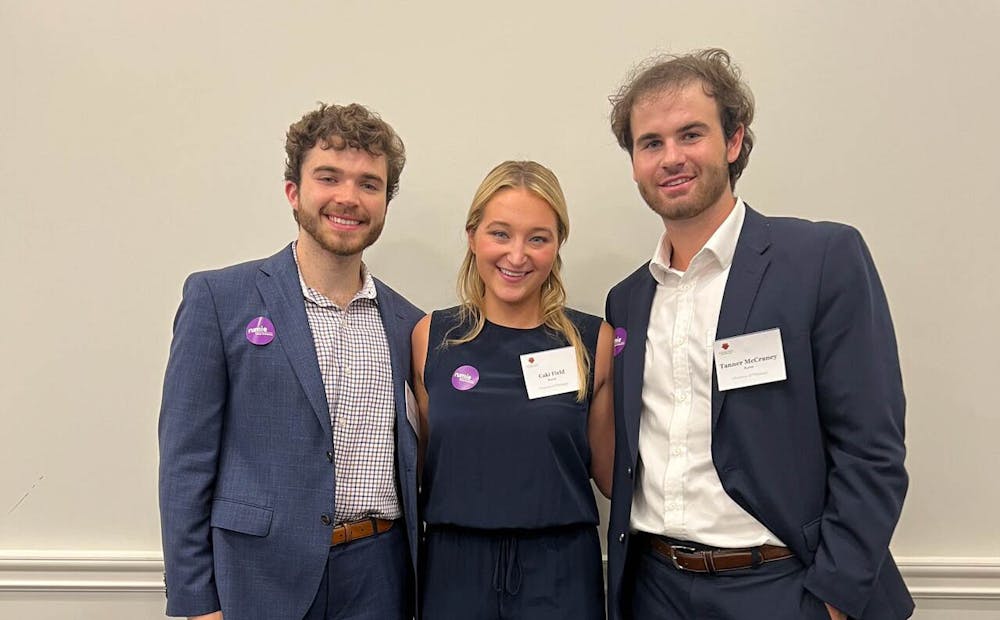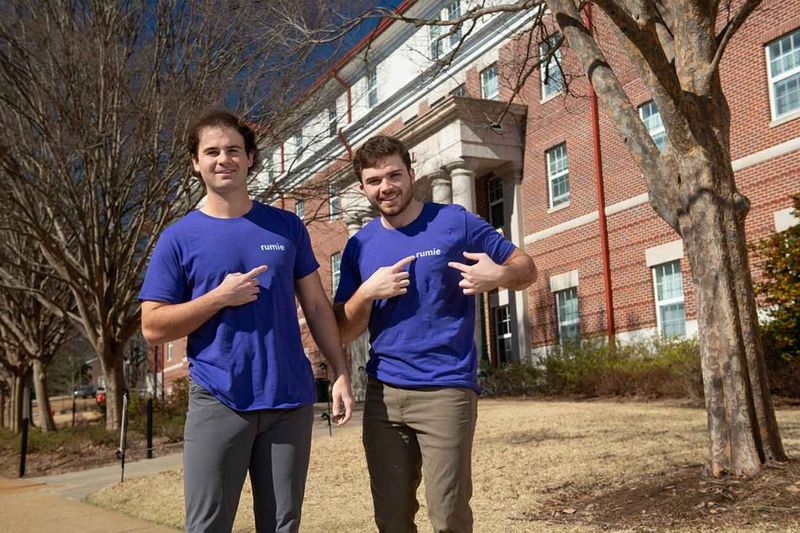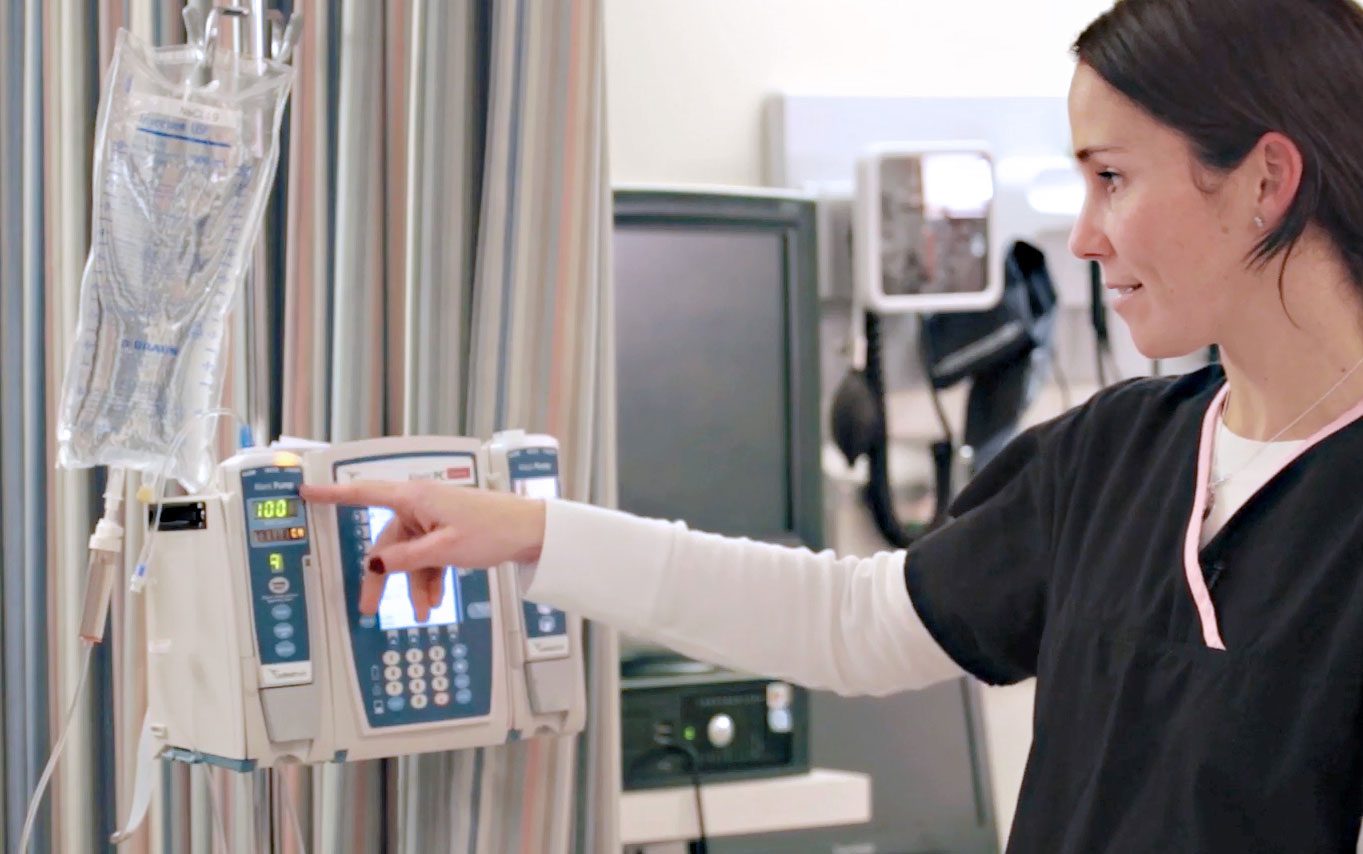
- What started at Ole Miss has now moved into other Southeastern Conference schools, making the app their official college marketplace.
As a freshman studying chemistry at Rhodes College in Memphis, Tanner McCraney answered a Facebook Marketplace ad and met the seller in a Wal-Mart parking lot, where he was robbed of all his cash.
The experience rattled him, and he vowed two things: to transfer to Ole Miss and to start an exclusive college-only free marketplace app where students didn’t have to leave campus to trade goods. He took the idea to longtime pal Patrick Phillips. Between the pair and co-founder Caki Field, they hammered out development, marketing, and fundraising details until they created the nation’s largest college marketplace.
“My plan was to go to med school, so I double majored in chemistry and business, took the MCAT, and then Rumie took off,” said McCraney, CEO of Rumie App LLC, a keynote speaker at the University of Mississippi Center for Innovation and Entrepreneurship’s (CIE) sixth annual REDe Entrepreneurship Summit on Nov. 7.
Rumie first launched on Jan. 21, 2022. Phillips and McCraney entered Rumie into a business competition that didn’t go well.
“We got smoked,” McCraney recalled. “After, we had two options: we could either quit or really lock down our idea.”
They entered another competition and won $15,000 — the Gillespie Business Plan Competition at the Ole Miss CIE – and free office space at Insight Park for a year.
“That basically secured our fate,” said McCraney.
Yet more great news awaited.
In early 2023, Rumie earned a $100,000 Mississippi Seed Fund award. In early 2024, the company closed its first seed round of funding for $450,000.
In October, Rumie was named the sixth best 2024 Best Tech Startup in Mississippi, based on revenue potential, leadership team, brand/product traction, and competitive landscape.
More than 320,000 students have used Rumie for more than 10,000 listings at 1,078 universities, selling items from textbooks ($20 average) to furniture (up to $200) to reselling sports tickets or even renting dresses or formalwear ($20 per rental) or marketing a margarita machine ($500). Other items for sale: tires, compound bows for hunting, 21st birthday signs, and Pokeman cards.
“Right before I got on this call, I was onboarding Mississippi State University,” McCraney explained. “They just adopted Rumie as their official marketplace. Having your own university adopt it is one thing, but having your rival adopt it is very validating.”
Several Southeastern Conference (SEC) schools have adopted Rumie as their official college marketplace. “The official SEC marketplace … that sounds good!” McCraney remarked about his goal of signing all SEC schools.
McCraney’s ultimate goal: to launch the Rumie app worldwide.
But first things first. After initially launching ads to attract college students individually, McCraney and his team realized it made more sense to recruit universities. In August, the team switched to a university-focused business model. First, they reach out to the appropriate university administrators, then to student government representatives, and finally to student affairs.
“We’re taking it one university at a time,” said McCraney. “Our goal is to get to five more universities, and then 10 more, and then 25 more, and then 50 more. We want to provide the best platform for students to buy and sell on campus.”
So, what’s Rumie’s greatest challenge?
“We lose 25 percent of our user base every year as students graduate,” said McCraney. “We’ve had to get creative on how to get users in a cost-effective and efficient way. That’s why we’ve pivoted to the university model. If the university takes care of the users, we can focus 100 percent of our time and effort and money on fine-tuning the best platform possible.”

More Summit News
At the Ole Miss CIE summit, Morgan Lee Stanley, co-founder of BrainTrust, also a keynote speaker, impressed students with her entrepreneurial acumen.
“Several young women came up to me who were either thinking about starting a business now or down the road, and it was really awesome to see their passion and engagement,” she said.
While judging the business model competition, Stanley noticed clever, innovative ideas.
“Two girls were in the idea phase of creating a lip gloss that’s actually not lip gloss,” she said. “The idea is to stick the end of the lip gloss in your drink to see if it’s spiked. If the end changes color, it’s spiked. So many young women are getting their drinks spiked while they’re out and these girls came up with a safety precaution. They did it as a school project, and have many phases to go through, but I think they’re on to something great if they can figure out the chemistry behind it.”
Last month, the Ole Miss CIE received a $150,000 boost from Charles Doty, co-CEO of Asset Preservation Advisors, an investment advisory firm that specializes in managing municipal bond portfolios, to establish the Charles R. Doty CIE Support Fund to provide resources for business plan competitions and Career Treks, which connect students with employers to find highly sought-after job and internship opportunities.
Competition Awards
Doty, who earned a business degree from Ole Miss in 1983, recently awarded Maryn Sifrit $10,000 (Charles R. Doty Entrepreneur Award) in the CIE-hosted Gillespie Business Plan Competition. Sifrit, an Ole Miss student, best exemplified the entrepreneurial spirit through a venture driven by innovation in a product, process, or service.
The CIE also hosted the Servin’ the South Business Model Competition on Nov. 7, in which dozens of budding entrepreneurs from several SEC institutions competed for a $10,000 grand prize.
CollegeMate from Ole Miss won first place. An online platform through Instagram that helps incoming college students find roommates and make friends, CollegeMate has expanded to 55 schools.
Pet HealthCare Innovations of Florida Atlantic University won second place. Pet HealthCare Innovations is a patent-pending and award-winning ecosystem of six products that work seamlessly for mobility-impaired dogs, including groundbreaking stationary potty stations, a revolutionary mobile walker, a next-generation wheelchair, and a best-in-class sling, harness, and hammock. This invention results in less euthanasia, a longer lifespan, and healthier, cleaner, faster, easier, and more affordable pet care.
The best visiting team was Glory EV Charging Solutions from Auburn University, a startup
dedicated to reducing range anxiety for electric vehicle drivers by helping businesses tap into the rapidly expanding EV market. The company offers comprehensive, turn-key EV charging solutions.
The University of Iowa’s Seat Stock, a marketplace for students to buy or sell student tickets, won Best Consumer Validation.
The Best Technology Utilization/Development Prize went to Auburn University’s Earlybird Co. LLC. It revolves around two products in the self-heating food and beverage packaging space. The flagship product: a self-heating, pre-filled coffee that, with a single step, becomes a flavorful, on-the-go hot coffee in 90 seconds.











